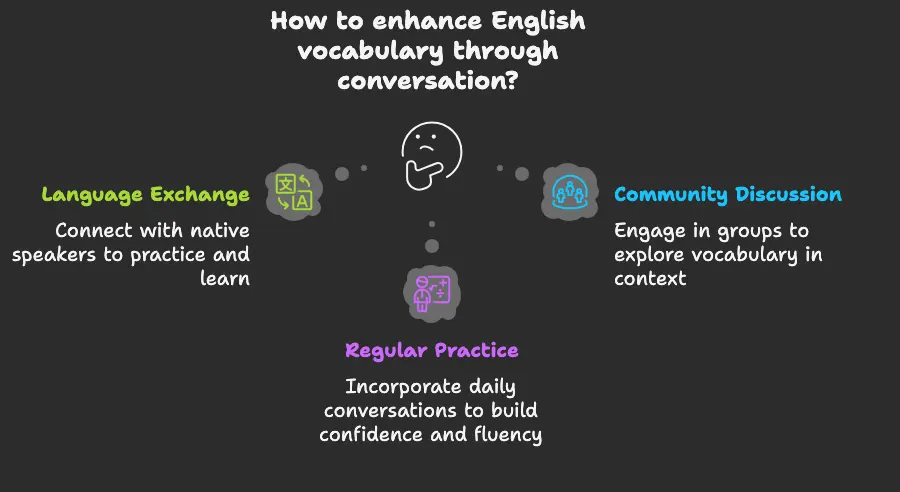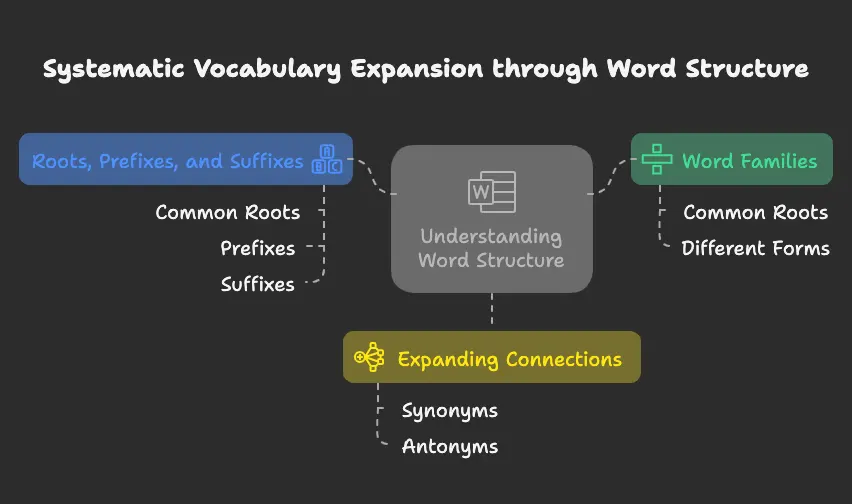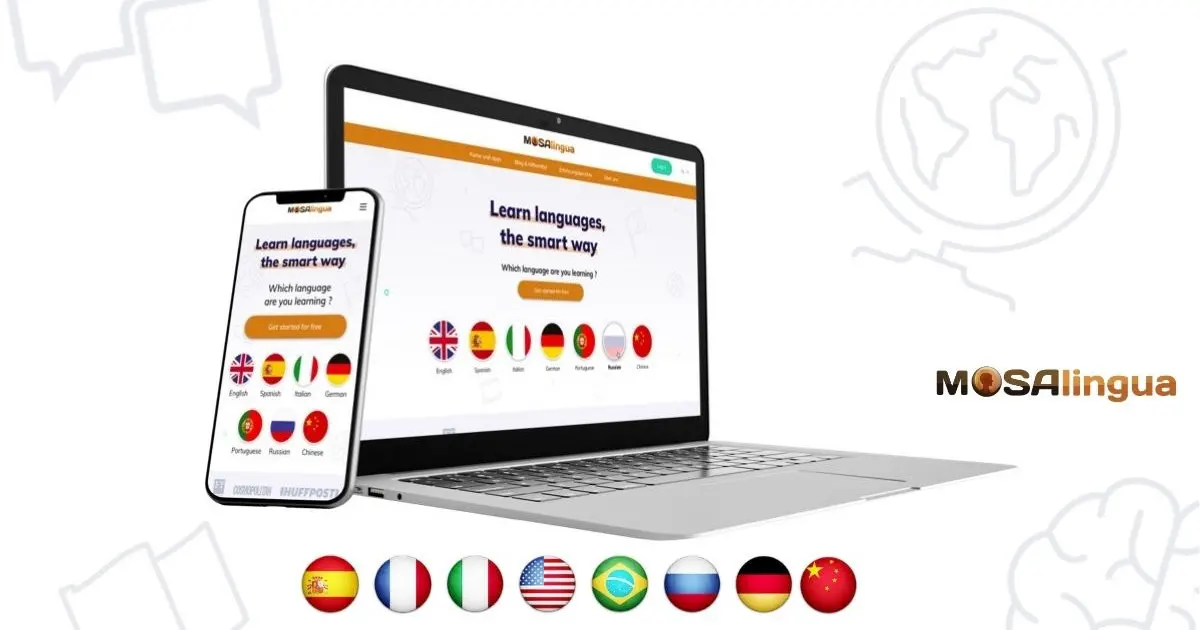You've moved beyond the basics of English, navigating conversations and understanding a good amount of what you hear and read. But the journey of language learning is continuous, especially when it comes to vocabulary. Expanding your word knowledge at the intermediate and advanced levels opens doors to deeper understanding, more nuanced expression, and greater confidence. This post takes a closer look at effective, research-backed strategies specifically designed to help intermediate and advanced non-native English speakers like you significantly enrich your vocabulary. Forget rote memorisation of endless word lists; we're focusing on active and contextual learning that sticks.
The Power of Reading: Expanding Vocabulary Through Exposure
One of the most fundamental and rewarding tools for vocabulary growth at your level is reading. Immersing yourself in the written word exposes you to new vocabulary in its natural habitat, allowing you to grasp not just definitions but also subtle nuances and proper usage.
A. Extensive Reading: The sheer volume of your reading matters. By engaging with a wide array of materials – think captivating novels, insightful articles, engaging blogs, and informative newspapers – you encounter new words repeatedly and in diverse contexts. This repeated exposure is crucial for solidifying their place in your long-term memory.
B. Strategic Reading Techniques: To maximise vocabulary acquisition through reading, consider these focused approaches:
- Graded Readers: Don't underestimate the power of graded readers. These books are specifically written for different proficiency levels, allowing you to gradually encounter more complex vocabulary without feeling overwhelmed. They provide a stepping stone to authentic materials.
- Reading Journals: Make it a habit to keep a reading journal. When you encounter an unfamiliar word, jot it down along with its immediate context, your initial guess at its meaning, and then its actual definition. Writing down an example sentence further reinforces your understanding.
- Context Clues: Hone your skill of deciphering meaning from context. Before reaching for a dictionary, analyse the surrounding words and sentences. What clues do they provide about the new word's meaning? This active deduction process deepens your comprehension and strengthens your ability to infer meaning in the future.
Leveraging Technology: Flashcards and Spaced Repetition
In today's digital age, technology offers powerful tools for vocabulary acquisition, and digital flashcards utilising Spaced Repetition Systems (SRS) are particularly effective for long-term retention.
A. Spaced Repetition Systems (SRS): SRS algorithms are designed to show you flashcards at increasing intervals, based on how well you remember them. Words you know well appear less frequently, while those you struggle with are repeated more often. This optimises your study time and strengthens memory consolidation. Popular apps like Anki and Quizlet allow you to create personalised decks based on the vocabulary you encounter or utilise pre-made decks tailored to specific learning goals.
B. Enhancing Flashcard Effectiveness: To make your digital flashcards even more potent:
- Multi-sensory Learning: Go beyond simple text definitions. Incorporate relevant images and audio pronunciations into your flashcards. Engaging multiple senses – visual and auditory – creates stronger memory links.
- Daily Practice: Consistency is key. Even a short daily review session with your flashcards can significantly solidify your knowledge over time. Treat it like a mini-quiz to actively recall and reinforce what you've learned.
Making It Real: Learning Vocabulary in Real-World Scenarios

While flashcards are great for memorisation, truly mastering vocabulary means understanding how words function in real-life situations. Contextual learning involves experiencing vocabulary as it's used in authentic dialogues, engaging stories, or multimedia content.
A. Multimedia: Surround yourself with English-language media:
- Movies and TV Shows: Watching English movies and TV shows with subtitles (initially, perhaps switching to English subtitles as you progress) allows you to see vocabulary in action, understand its nuances in different social contexts, and simultaneously improve your listening skills. Pay attention to how native speakers use words and phrases.
- Podcasts: Tune into English-language podcasts on topics that genuinely interest you. This exposes you to conversational English, idiomatic expressions, and often specialised vocabulary related to the subject matter.
B. Practical Application: Bring English into your daily environment:
- Labelling Everyday Objects: A simple, yet effective technique, is to label items around your house with their English names. This constant visual reminder reinforces vocabulary through daily, passive interaction.
Engaging Actively: The Role of Conversation

Language is inherently social, and actively engaging in conversations is a powerful catalyst for vocabulary acquisition. When you speak, you're forced to recall and use the words you know, and you're also exposed to new vocabulary from your conversation partners.
A. Language Exchange: Connect with native English speakers through language exchange apps like Tandem or HelloTalk. These platforms provide opportunities for real-time practice, where you can learn from native speakers and help them learn your native language in return.
B. Community and Discussion: Seek out opportunities to discuss topics of interest in English. Joining book clubs, online forums, or even informal discussion groups allows you to explore new vocabulary within a specific context and see how others use it.
C. The Power of Regular Practice: Make speaking English a regular part of your routine. Even short daily conversations can build your confidence in using new vocabulary and improve your overall fluency. Don't be afraid to make mistakes – they are part of the learning process.
Solidifying Knowledge: Vocabulary Through Writing
Writing is a productive skill that compels you to actively retrieve and utilise the vocabulary you're learning. It's a fantastic way to solidify your understanding and identify areas where you might need further clarification.
A. Consistent Writing Practice: Make writing a regular habit:
- Journaling: Dedicate time each day to writing about your experiences, thoughts, or anything that comes to mind in English. This consistent practice provides ample opportunity to incorporate new vocabulary into your personal expression.
B. Creative Application: Challenge yourself with more creative forms of writing:
- Creative Writing: Try composing short stories, essays, or even poems in English. This encourages you to think creatively with the language and actively seek out and use more advanced vocabulary to convey your ideas effectively.
C. The Value of Feedback: Don't hesitate to share your written work with teachers, language partners, or online communities for feedback. Constructive criticism can provide valuable corrections and insights into your vocabulary usage and help you refine your writing.
Decoding the Language: Understanding Word Structure

Instead of memorising isolated words, understanding the building blocks of the English language can significantly expand your vocabulary in a more systematic way.
A. Word Families: Explore word families – groups of words that share a common root but have different forms and meanings (e.g., "happy," "happiness," "unhappy," "happily"). Learning one word in a family often provides clues to the meanings of related words.
B. Roots, Prefixes, and Suffixes: Familiarise yourself with common English roots (e.g., "bio" meaning "life," "scrib" meaning "write"), prefixes (e.g., "un-" meaning "not," "pre-" meaning "before"), and suffixes (e.g., "-ness" forming nouns, "-ly" forming adverbs). Recognising these affixes can help you decode the meaning of unfamiliar words efficiently.
C. Expanding Connections: Actively learn synonyms (words with similar meanings) and antonyms (words with opposite meanings). This not only doubles the number of words you acquire but also enhances your understanding of subtle differences in meaning and usage.
Making it Fun: Interactive Vocabulary Activities
Learning doesn't have to be a chore! Incorporating dynamic and enjoyable activities can make vocabulary acquisition more engaging and memorable.
A. Games: Utilise word games like crossword puzzles, word searches, and vocabulary bingo. These fun activities reinforce your knowledge in a relaxed and interactive way.
B. Practical Application Through Play: Engage in role-playing scenarios. Simulating real-life situations, such as ordering food at a restaurant or discussing a news article, encourages you to actively use new vocabulary in a practical context.
C. Personal Vocabulary Collection: Maintain a vocabulary journal where you record new words, their definitions, and example sentences. Reviewing this journal periodically can be an interactive way to track your progress and reinforce your learning.
Utilising Digital Resources: Online Tools for Vocabulary Growth
The internet is a treasure trove of resources designed to help English learners expand their vocabulary. Consider incorporating these platforms into your learning routine:
| Platform | Features |
|---|---|
| Lingoda | Interactive classes with native speakers; flexible schedules; downloadable materials. |
| BBC Learning English | Free high-quality lessons; podcasts; grammar tips. |
| TED Talks | Engaging videos on diverse topics; transcripts available for vocabulary practice. |
| Busuu | Community-based learning; pronunciation practice; tailored courses. |
Explore these and other online resources to find tools and methods that resonate with your learning style and preferences.
FInal Thoughts
Mastering English vocabulary at the intermediate and advanced levels is an ongoing but incredibly rewarding journey. By strategically combining extensive reading, contextual learning through multimedia, active participation in conversations, consistent writing practice, the intelligent use of flashcards and spaced repetition, a focus on word structure, engaging interactive activities, and the wealth of online resources available, you can significantly expand your vocabulary and enhance your overall fluency. Remember that consistency, active engagement, and a genuine curiosity about the English language are your greatest allies on this path to linguistic mastery. Embrace the challenge, enjoy the process, and watch your vocabulary flourish!
Frequently Asked Questions (FAQ):
Q: I'm an intermediate English speaker. Which reading materials are most suitable for expanding my vocabulary?
A: For intermediate learners, graded readers are an excellent starting point as they are designed for specific proficiency levels. You can then gradually progress to more authentic materials like articles, blog posts, and simpler novels. Remember to keep a reading journal to note new words and their context.
Q: How can I effectively use flashcards to remember new English vocabulary long-term?
A: Utilize digital flashcards with a Spaced Repetition System (SRS) like Anki or Quizlet. Incorporate images and audio to engage multiple senses. Most importantly, practice daily to reinforce your learning at increasing intervals.
Q: Besides formal study, what are some enjoyable ways to learn new English words in context?
A: Immerse yourself in English-language media such as movies, TV shows (with subtitles), and podcasts. Pay attention to how words are used naturally. Additionally, try labeling objects around your home in English to reinforce vocabulary through daily interaction.
Q: How important is speaking in improving my English vocabulary, and what are some ways to practice?
A: Speaking is crucial as it forces you to actively use new vocabulary and improves fluency. Engage in language exchange with native speakers through apps, join discussion groups or book clubs, and make a conscious effort to speak English regularly, even in short conversations.
Q: I often encounter unfamiliar words with prefixes or suffixes. How can understanding these help me learn more vocabulary?
A: Learning common prefixes (like "un-" or "pre-") and suffixes (like "-ness" or "-ly") can significantly aid in decoding the meaning of unfamiliar words. Recognizing these word parts allows you to make educated guesses about a word's meaning without always needing a dictionary, thus expanding your vocabulary more efficiently.




